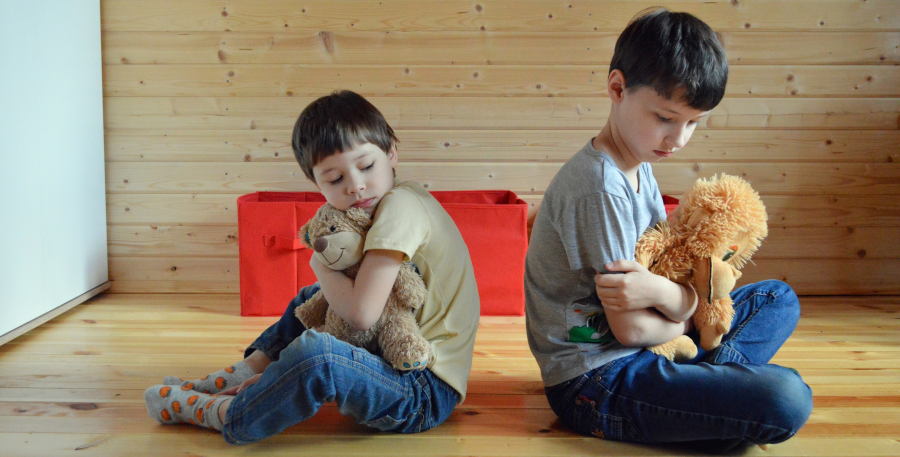
Frustration is a healthy emotion, and it is necessary for children to feel it. We do not want to shield our children from disappointment, as it is critical for driving resiliency. Disappointment can help children understand there is something they want.
If we prepare our young children to manage disappointment well, it could motivate good decision-making. Nevertheless, it is still hard to handle disappointment, and it is equally hard to watch your child experience it intensely. If disappointments frequently send your child into tears, do not fear. There are seven strategies to help your child manage disappointment.
Be a guide, not a fixer
As a caregiver, you cannot be there to soothe every complex emotion or solve every problem for your child as they grow. It is essential to act as a guide for managing setbacks instead of jumping in with the fix. Parents, as a guide, help your child brainstorm the problem and think through possible solutions while you comfort him. And to think about how to turn the situation around into something good.
Practice delayed pleasure
It can be difficult for kids to understand that many things require time and practice in a world that thrives on instant satisfaction. A child cannot do well in martial arts for the first time without mistakes. That is not how life works. It is the same for sports, puzzles, games, art, and everything else.
Routines are helpful when it comes to helping kids learn to delay gratification—establishing a rule where kids have thirty minutes of downtime before heading to the park to meet friends after school teaches kids to slow down and wait instead of running from activity to activity. Practicing goal setting as a family is another helpful strategy. If your child struggles with jigsaw puzzles because it is difficult to see the big picture through all the pieces, you can help by working on one corner at a time and setting timers to help your child remember to take breaks.
Teach self-calming skills
Learning how to process painful emotions plays an essential role in coping with disappointment. When parents teach self-calming skills, kids learn that they can get into complicated things.
All kids are varied and have different requirements when it comes to calming down.
Practice deep breathing while remembering their favorite things for each color of the rainbow. Coloring, drawing, and molding clay can all be relaxing. Get outside to play. Listen to soft music.
Positive self-talk: You should be a model for kids, showing them how you can solve problems even when you are angry. For example, if you did not get the job you applied for, you can say that there is an even better opportunity waiting.
Read a book: Reading a book will give a child focus and a calming effect. Make something: Make brownies, cakes, or toys out of clay, flower making, painting on a canvas, etc. Craft activities help to release restless energy. Taking a warm bath is a significant way to help wash away harmful or irritating feelings. Find humor in the situation, which helps teach your child to look at things differently. Let kids see you laugh at yourself.
Get close to your child
If the child feels more comfortable with the parent’s physical touch, hang out with them, and offer hugs and cuddles, which the child needs. Sometimes a gentle, painless squeeze on a child’s arms will calm your kids.
It might be hard to watch the child struggle with the immense feeling but predicting confidence in the child’s competence by waiting relaxed and present.
Do not Let Disappointment Win
Each person who has had even a slight degree of success in life has faced disappointments. Winners do not stop. They study from their failures and disappointments and go on to reach their aims.
Get Ready for Next Time
Once help the child through one disappointment, make sure the brainstorm ways to fix the next one. If it is a situation like not earning a chance in a cooking competition, encourage the child to ask for suggestions from the teacher why she was rejected from the competition.
It is a great idea to speak to the child regarding what he or she can do next. Ask your child how they handled their last disappointment and what they think they should do now. Tell her how good it felt when she ejected back from a past disappointment. By arming kids with the experience of success and determination, which providing the cushion, they need to fall back on when disappointment strikes.
Do not beat for or probe into the emotion or your child’s response
It is easy to react with anger if your child responds with anger since we are all stressed presently. Try to recognize that the attack is at the situation and disappointment, not with you. Instead of shouting back, find a different way to get out of anger.
Conclusion
It takes time to obtain the skills to cope with disappointment. Be patient when the child has unusual reactions to seemingly unimportant events. Sometimes a good venting encourages kids to work through their emotions to think more logically regarding the disappointing experience and what they can do to recover. Kids do not need to allow disappointment to lower their self-confidence, resilience, and emotional intelligence.

